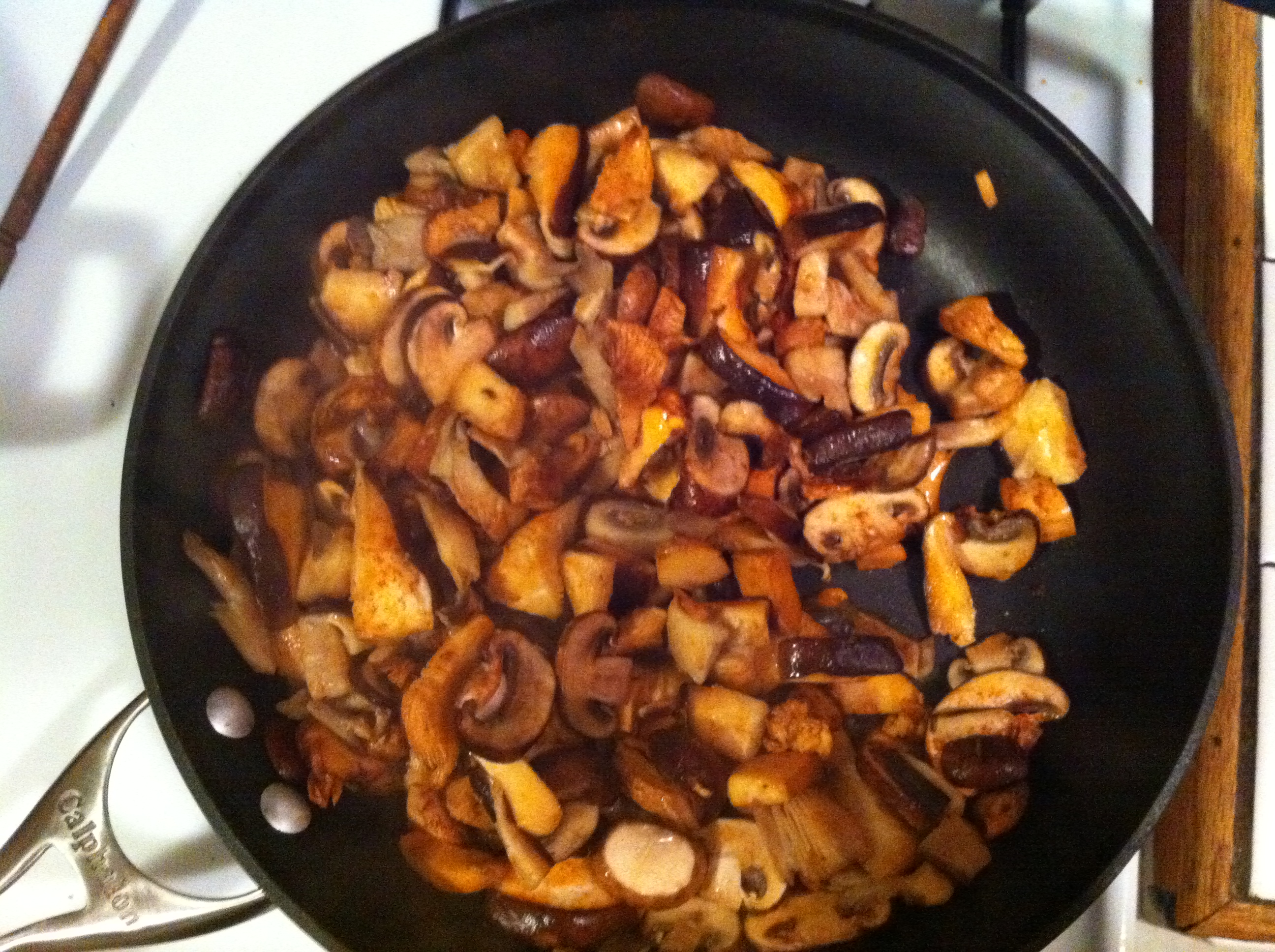20 Mar
Cooking Mushrooms
First of all, you should be aware that I am no mushroom expert. Everything I know about cooking mushrooms I have learned in pursuit of trying not to be such a miserable failure at cooking mushrooms. The fact is, for years I was totally incapable of ever doing anything with mushrooms except destroying them. And then one day I thought to myself, “I love mushrooms so much, it’s tragic that I couldn’t cook a single mushroom well, even if my life depended on it. I wonder if I can find any information online on how to cook mushrooms …” And then of course I immediately found tons of information and I realized I had been a fool to spend so much time ruining mushrooms when there was a huge body of wisdom on the subject right at my fingertips the whole time. In sum, I read some articles and now I’m much better at cooking mushrooms. Contrary to what I previously believed, it’s not rocket science. One just needs to be aware of a few key mushroom properties. For instance, cooking delicious mushrooms starts with storing & preparing them properly.
Storage and prep
- Select mushrooms that are spongy but not soggy, avoiding the ones with damaged gills.
- Keep them in paper bags, not plastic, so they don’t get slimy. (Mushrooms have a lot of moisture and paper will absorb it and keep them dry longer.)
- Don’t wait too long to prepare them; old mushrooms start to taste kind of nutty (not in a good way). I find that the mushrooms I buy from the store are usually past their prime after 3 – 4 days.
- Depending on what you’re doing with them, it’s probably a better idea to brush them clean rather than rinse them. Use a soft, dry cloth, or, better, a mushroom brush (if you can’t find a mushroom brush, use another soft brush; for instance, I use a basting brush). If you rinse them, they can get slimy, though for the most part if you are cooking them immediately after rinsing them it will probably be okay, it just may introduce more moisture into the recipe. I personally prefer to brush them, I think it’s more effective, and also it’s kind of fun and meditative.
- Don’t slice them too thin; I learned this from my friend Nick who worked as a professional line cook for some years. Apparently if you slice them too thin they soak up too much oil and cook too quickly, resulting in limp and overcooked mushies. No thanks! I try to cut them no thinner than 1/4 inch thick.
Cooking the ‘shroooms
Mushrooms, as we’ve alluded to, are full of moisture, but they can also be very absorbent. So it is important to first allow mushrooms to release their juices before doing much with them, and it is also important to remember that after releasing their juices, they will immediately reabsorb them along with anything else in the pan. So, one ought to be judicious about when to introduce things like garlic or onion or salt during the sauteing of mushrooms. For example, let’s consider my Mushroom Spinach Arrabiata, in which we begin with the mushrooms accordingly:
- Saute the mushrooms on medium heat for a couple of minutes
- Cover and continue to cook until they juice, a few minutes
- Uncover and continue to cook until the juice is gone again, a couple more minutes
Then add the onion and garlic. And later salt.
If we were to add the onion and garlic at any stage prior to the re-absorption of the juices, then the flavor of the mushrooms could be overwhelmed by the flavors of the additional ingredients. I’m not saying there will never be situations where you wouldn’t want that to be the case; for instance, the chanterelles and fresh corn recipe calls for everything to sauté simultaneously, and the chanterelles are strong enough that the sweetness of the corn is simply a compliment. In any case, it’s just something to be conscious about.
There are other schools of thought that suggest that you can just quickly brown mushrooms for a couple of minutes and throw them right into the other ingredients of your recipe when they’re slightly toasted. In theory I suppose this could work, but in practice, I have never found it to produce results that I’m happy with. On the occasions when I’ve browned mushrooms and not let them juice before proceeding, I’ve felt the mushrooms ended up tasting kind of raw and tinny. Maybe some people like that, but I prefer the post-juiced mushrooms because I think they have a more voluptuous flavor that way.


Posted by Alissa Wright on 20.03.11 at 1:42 pm
Briliant advice. Now I’m totally hungry! Love the blog, Z!
Posted by Alissa Wright on 20.03.11 at 1:42 pm
That would be BRILLIANT. Ugh. Anyway, keep it up!
Posted by Z on 20.03.11 at 1:42 pm
Thanks for visiting, Alissa!